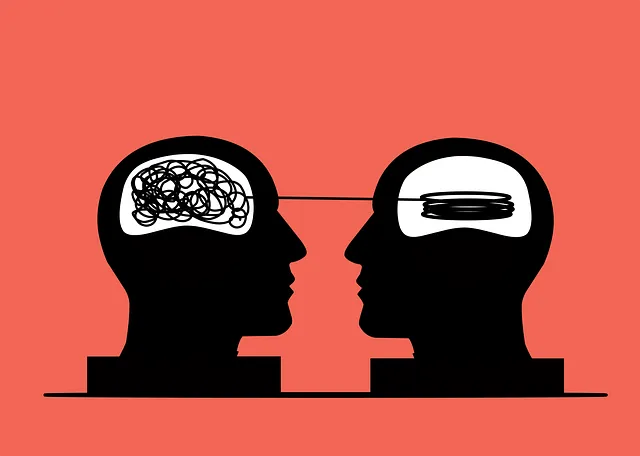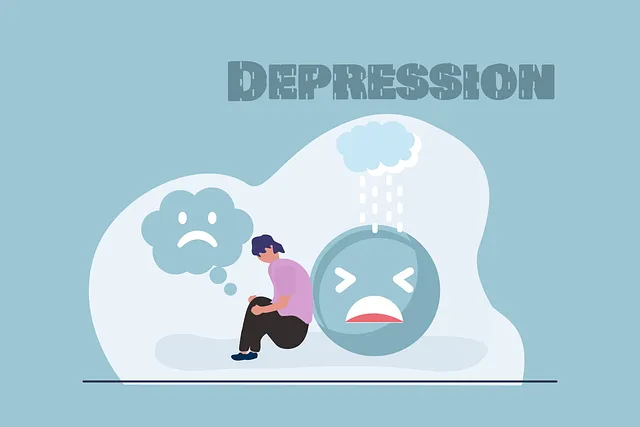Kaiser Permanente Lone Tree has introduced an advanced cultural competency training program focused on mental health services, emphasizing understanding and empathy towards diverse patient backgrounds. This initiative, centered around Mind Over Matter Principles, equips healthcare professionals with skills to adapt practices for personalized care, fostering trust and improving outcomes. By addressing cultural biases and barriers through risk assessments and continuous education, the program prevents provider burnout and enhances patient-provider relationships, revolutionizing mental healthcare accessibility in Lone Tree and beyond. Well-structured curricula, including case studies, role-playing, and workshops, combined with feedback mechanisms and practices like mindfulness meditation, ensure effective cultural competency in addressing diverse populations' needs.
Healthcare provider cultural competency training is an evolving necessity, especially in diverse communities like those found in Lone Tree. This article explores the vital role of cultural competency in healthcare delivery, drawing insights from industry leaders like Kaiser Permanente’s mental health initiatives. We delve into the impact of culturally aware practices on patient care and provide a practical guide for implementing effective training programs. By understanding and addressing cultural nuances, healthcare providers can significantly enhance services, particularly in Lone Tree communities.
- Understanding Cultural Competency in Healthcare: A Necessary Framework
- Kaiser Permanente's Approach to Mental Health Training: A Case Study
- The Impact of Cultural Awareness on Patient Care in Lone Tree Communities
- Implementing and Evaluating Effective Cultural Competency Programs for Healthcare Providers
Understanding Cultural Competency in Healthcare: A Necessary Framework

Cultural competency in healthcare is a crucial framework that ensures providers can offer quality care to diverse patient populations. It involves understanding and respecting different cultural beliefs, values, and practices, enabling healthcare professionals to create an inclusive environment for all. This is especially vital in areas like Kaiser Permanente mental health services in Lone Tree, where patients may have unique backgrounds and perspectives on wellness and illness.
The Mental Health Education Programs Design should incorporate risk assessments for mental health professionals to identify cultural biases and barriers. By doing so, these programs can equip healthcare providers with the necessary skills to navigate complex cultural landscapes, enhancing patient-provider relationships and ultimately improving mental health outcomes. This approach aligns with the goal of comprehensive Healthcare Provider Cultural Competency Training, ensuring that every interaction is sensitive to diverse cultural contexts.
Kaiser Permanente's Approach to Mental Health Training: A Case Study

Kaiser Permanente, a leading healthcare provider with its mental health services based in Lone Tree, has pioneered an innovative approach to cultural competency training for their staff. Their program focuses on fostering understanding and empathy among care providers, recognizing that effective treatment begins with recognizing and addressing individual cultural backgrounds and mental health challenges.
The Mind Over Matter Principles, at the heart of Kaiser Permanente’s initiative, emphasize the interconnectedness of mental well-being, stress management, and mood regulation. Through interactive workshops and ongoing educational sessions, healthcare professionals learn to navigate diverse patient populations, adapting their practices to meet unique needs. This holistic training extends beyond traditional diagnostic approaches, encouraging a supportive environment where patients feel heard and understood. By integrating these principles into their operations, Kaiser Permanente aims to revolutionize mental health care, making it more accessible and culturally sensitive for all individuals in Lone Tree and beyond.
The Impact of Cultural Awareness on Patient Care in Lone Tree Communities

In Lone Tree communities, cultural awareness plays a pivotal role in enhancing patient care, particularly within mental health services offered by organizations like Kaiser Permanente. With a diverse population, healthcare providers must be adept at navigating different cultural backgrounds and beliefs to ensure effective treatment. Cultural competency training equips professionals with the skills to deliver personalized care, fostering trust and improving patient outcomes. By understanding the unique needs of various communities, including those in remote or underserved areas like Lone Tree, healthcare providers can avoid miscommunication and address mental health concerns more sensitively.
This is especially crucial in the context of burnout prevention for healthcare workers. Crisis intervention guidance and burnout prevention strategies are enhanced when professionals are culturally aware. In a community like Lone Tree, where cultural boundaries may intersect with access to mental health services, trained providers can offer tailored support, reducing the risk of provider burnout and improving crisis intervention capabilities. Such initiatives ensure that residents receive compassionate, culturally competent care, ultimately strengthening mental health outcomes in these diverse communities.
Implementing and Evaluating Effective Cultural Competency Programs for Healthcare Providers

Implementing effective cultural competency programs is vital for healthcare providers to deliver quality care to a diverse range of patients. At Kaiser Permanente Lone Tree, for instance, such initiatives have been pivotal in enhancing patient outcomes and provider satisfaction. These programs should focus on educating healthcare professionals about different cultural backgrounds, beliefs, and practices to ensure sensitive and respectful interactions. A well-structured curriculum that incorporates case studies, role-playing scenarios, and interactive workshops can help providers navigate complex ethical dilemmas and improve their communication skills.
Evaluating these programs is just as crucial to measure their impact and identify areas for improvement. Feedback mechanisms, such as post-training assessments and ongoing performance reviews, allow for a Community Outreach Program Implementation that aligns with the needs of diverse patient populations. Additionally, integrating practices like Mindfulness Meditation and Burnout Prevention can foster an environment where healthcare providers feel supported and equipped to handle the challenges of cultural competency.
Cultural competency training is no longer a choice but an essential component of modern healthcare. As evidenced by Kaiser Permanente’s successful mental health initiative and the positive patient outcomes in Lone Tree communities, comprehensive programs can significantly enhance care delivery. By fostering cultural awareness, healthcare providers can create more inclusive and effective treatment plans, ensuring better health outcomes for diverse patient populations. Implementing evidence-based competency programs, as outlined in this article, is crucial for healthcare organizations to stay competitive and responsive to the evolving needs of their communities.






